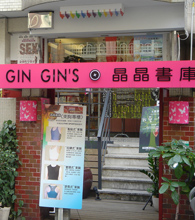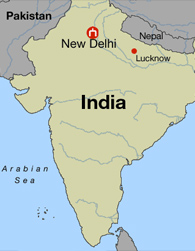Taiwan gay groups call for end to obscene publications law
Members of several Taiwan gender rights groups have called for the abolition of laws which bans the sale, circulation and public display of obscene publications.

The move comes after the December 2 conviction of the owner of the country's first gay bookstore by the Taiwan High Court last year. Lai Jeng-jer, owner of the 7-year-old Gin Gin Bookstore (http://www.ginginbooks.com)was convicted of obstructing public morality for importing a gay sex magazine from Hong Kong, based on Article 235 of the Criminal Code.
Lai was charged after his regular shipment of 200 copies of legally imported male body magazines from Hong Kong was seized by the Police in March 2003. Police raided the bookstore and confiscated more than 500 copies of similar publications in August the same year.
Gay activists involved in the campaign have argued that the lack of a clear definition of "obscenity" has allowed judges too much discretion to decide what constitutes obscenity.
G/SRAT urges readers to write to the Taiwan Keelung District Court at klcmail@mail.moj.gov.tw. Writers are asked to send a copy of the email (subject: We Support Gin Gin Bookstore) to G/SRAT at gsrat@gsrat.net and Lai J.J., owner of Gin Gin Bookstore, at gingins@gingins.com.tw.
POST/READ COMMENTS
Human rights group renews call to repeal "colonial-era" sodomy law in India

On January 4, Lucknow police arrested four men on charges of operating a "gay racket" on the Internet, as well as of engaging in "unnatural" sex.
Police claim they seized the men while having a picnic in a public place, and accused them of belonging to an "international gay club" centered around the Internet website guys4men.com, on which gay men can place personals and engage in Internet chat. Reports received by Human Rights Watch indicate that undercover police, posing as gay on the website, entrapped one man, then forced him to call others and arrange a meeting where they were arrested.
"Lucknow police have a shameful record of harassing gay men as well as non-governmental organizations that work with them," said Scott Long, director of Human Rights Watch's Lesbian, Gay, Bisexual, and Transgender Rights Program.
"They are able to do so because India's government clings to the criminalisation of homosexual conduct, which only prevents people from coming forward for HIV/AIDS testing, information, and services."
In July 2001, Lucknow police, apparently spurred by an informer, raided the local offices of two nongovernmental organizations (NGOs) working on HIV/AIDS prevention, the Naz Foundation International (NFI) and Bharosa Trust. Four staff members were jailed for 47 days in deplorable conditions, accused of running a gay "sex racket."
Police declared the HIV/AIDS-related information materials seized in the raided offices "obscene." They charged the men under India's sodomy law, criminal conspiracy, aiding and abetting a crime and the sale of obscene materials. After international condemnation of the detention of the "Lucknow Four," the case was eventually dropped.
A challenge to section 377's constitutionality was brought was brought before the Delhi High Court in 2001 by the Naz Foundation India, asking the court to declare the law should no longer apply to consenting adults. In response, the then government stated that, "The purpose of section 377 of IPC is to provide a healthy environment in the society by criminalising unnatural sexual activities." The case ended indecisively, and litigation is still pending.
"Section 377 strikes at the basic right to privacy," said Long. "This case shows how it is used against rights to free expression and to meeting in a public place. It casts a pall over public health efforts."
POST/READ COMMENTS
Zhengzhou gives free HIV tests to gay men
Men who have sex with men in Central China's Henan Province can now get free checkups and HIV tests in a bid by the government to curb the spread of sexually transmitted diseases (STDs) and HIV/AIDS among the group. The tests will also cover syphilis and hepatitis, according to the state-owned Xinhua news agency.
Jointly conducted by the Ministry of Science and Technology and the Health Ministry, the project marks the first time a provincial-level government is sponsoring such tests.
Wang Zhe, vice director of the center, said the tests will be given in seven to ten days, covering 200 MSM. The results will be analysed by researchers to gain more knowledge about the prevalence of STDs among the group of people.
Along with the health examinations, the researchers will also hand out questionnaires to learn about their families, marital status, sex orientation and behaviours.
The center has said that it will work with local volunteering groups for gays to recruit participants as some are reluctant to be identified although the tests will be anonymous and their information be kept confidential.
The research project will be concurrently launched in eight other cities, including Chengdu, Chongqing and Nanjing.











 列印版本
列印版本










讀者回應
搶先發表第一個回應吧!
請先登入再使用此功能。